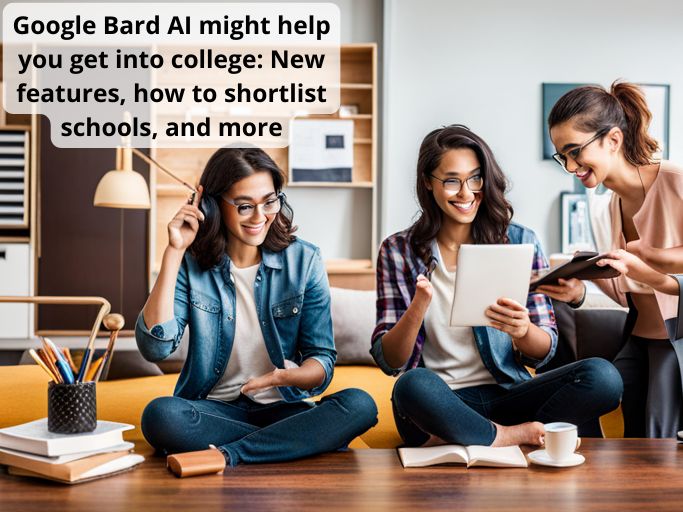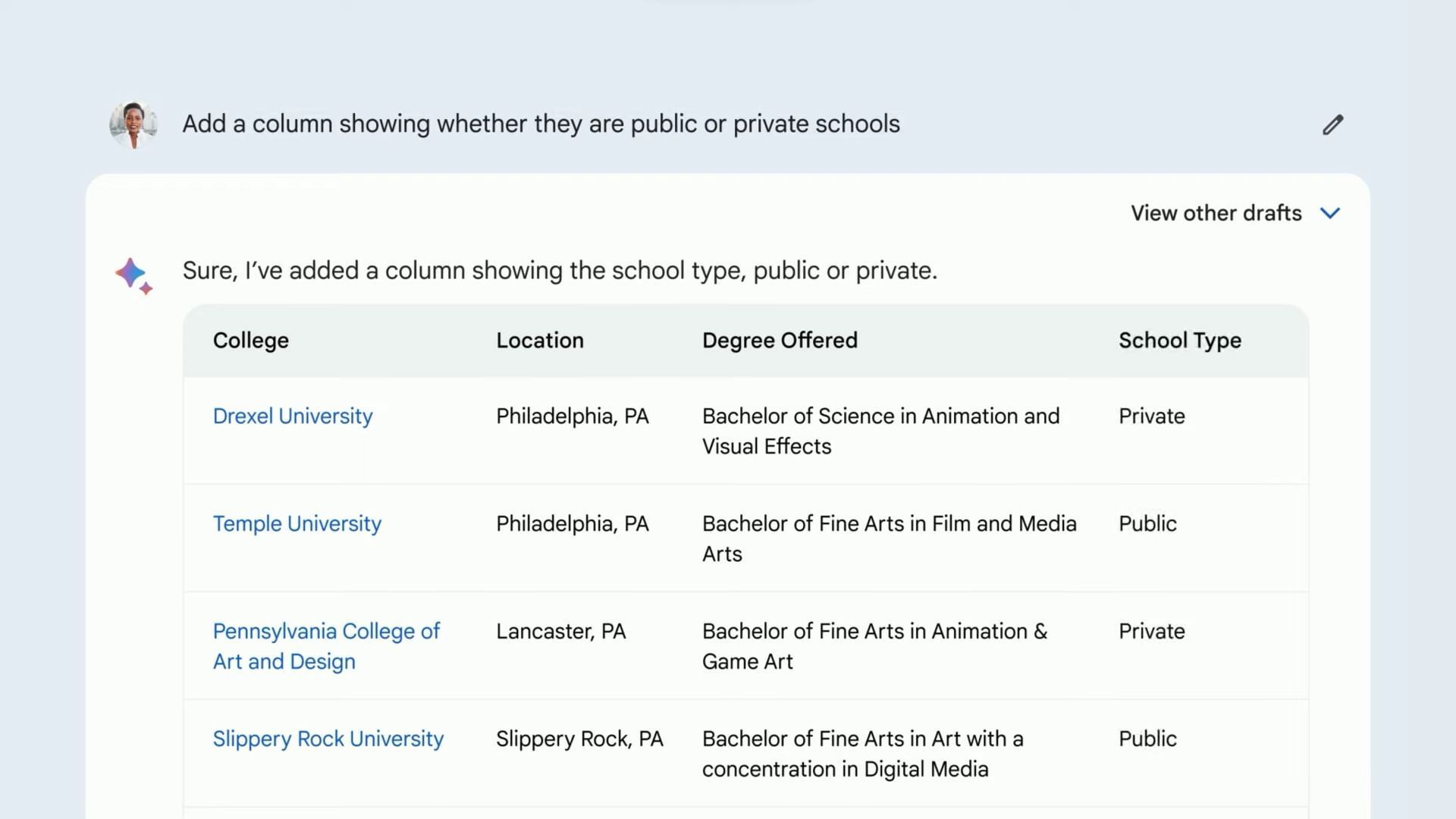
Users will now be able to simply type in a prompt, and the AI will generate well-researched results, thereby saving time. According to the company's executives, the AI models have helped researchers and scientists at MIT achieve 400 million years' worth of progress in a matter of few weeks.
Among the multiple quirky new features of Bard is the ability to scour results from all over the internet and jumble them into one response. One such use case was demoed live at the I/O event last night, where Bard was showcased shortlisting options for college.
Finding the best schools can be a daunting process, and students often feel immense pressure to gather every tidbit of information while also maintaining a good high school GPA and SAT score.
In the demo showcased by Google executive Sissie Hsiao, passing a simple prompt that includes some of your interests can help the AI draft out a list of available college programs that you can then apply to.

After finalizing the program that best suits your interests, enter a prompt asking Bard to list all the best colleges offering a degree in the field. You can even include a particular county or state if you want to study close to home or qualify for in-state tuition.

Google Bard AI isn't mechanical, unlike Search, but it can stitch together information from multiple prompts and create a well-rounded information block to help users organize events, meetings, or even best colleges, as in this example.
In the demo showcased at Google I/O, asking the AI to "show these on a map" prompted it to work in tandem with Maps to produce a visual representation of the universities in Pennsylvania offering programs in animation.
Furthermore, asking Bard to "Show these options on a table" made it do just that. All the schools were neatly organized in the format of a table with the name of the degree offered, a hyperlink to the university's official page, and its location.

If you aren't satisfied with the depth of the info, simply ask Bard to add another column with some more information, like whether the schools are public or private, and the AI will list all the relevant information.
Furthermore, you can simply ask the AI to move this information to Google Sheets and share it with their family. This is the biggest differentiator between this AI and traditional search.
Shortlisting the best schools is just an example of what the artificial intelligence model is capable of. It's only available to closed beta testers right now, but the company is planning to roll it out to the public later this year.
